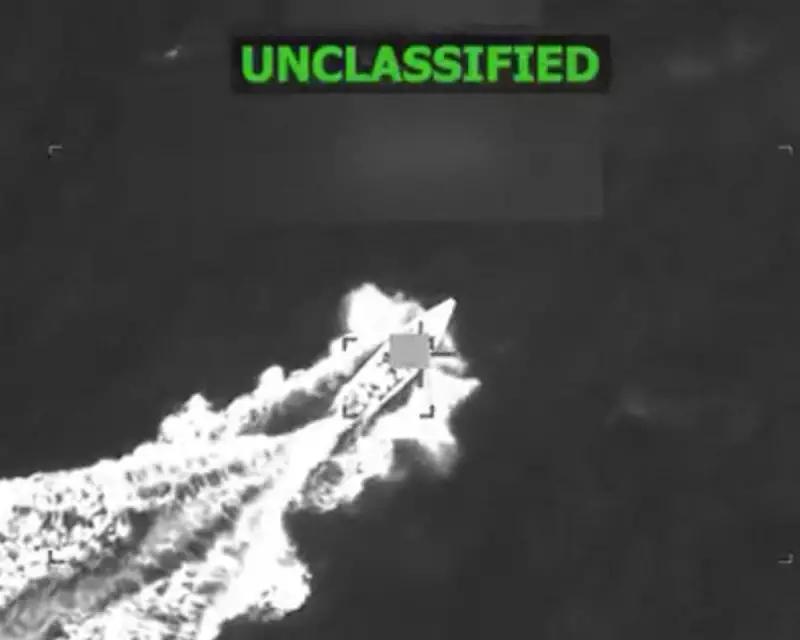
In a dramatic escalation of its counter-narcotics campaign, the United States military has conducted its second strike on a suspected drug-smuggling vessel in Latin American waters within just one week. The latest operation signals Washington's increasingly aggressive stance against maritime narcotics trafficking in the region.
Rapid Succession of Strikes
The most recent strike targeted what US officials described as a "low-profile" vessel navigating through the Pacific Ocean. This comes merely days after another similar operation, indicating a coordinated and intensified effort to disrupt drug smuggling routes that have long plagued the hemisphere.
According to military sources, the targeted vessel was suspected of transporting substantial quantities of illegal narcotics, though specific details about the cargo and any casualties remain undisclosed. The operation was conducted under the authority of US Southern Command, which oversees American military activities throughout Latin America.
Strategic Shift in Counter-Narcotics Approach
This back-to-back military action represents a significant departure from previous counter-narcotics strategies, which typically relied more heavily on intelligence sharing and joint operations with local authorities. The direct military engagement suggests a new, more confrontational approach to combating drug cartels and their maritime operations.
Regional security analysts note that low-profile vessels have become the transport method of choice for sophisticated drug trafficking organisations. These craft are designed to ride low in the water, making them difficult to detect by conventional surveillance methods.
Regional Implications and Reactions
The escalating US military involvement is likely to generate mixed reactions throughout Latin America. While some governments may welcome additional support in combating powerful drug cartels, others might view the unilateral actions as an infringement on national sovereignty.
"The frequency and nature of these strikes indicate a new phase in US counter-narcotics operations," noted a regional security expert. "We're seeing a shift toward more direct military intervention rather than the cooperative approaches that characterised previous administrations."
Broader Counter-Narcotics Context
This maritime offensive occurs against the backdrop of ongoing efforts to stem the flow of illegal drugs from Latin America to United States markets. The Biden administration has faced increasing pressure to address both domestic consumption and international supply chains.
- Back-to-back strikes within one week signal new operational tempo
- Focus on "low-profile" vessels targets cartels' preferred transport method
- Unilateral actions may strain diplomatic relations with regional partners
- Strategy shift from cooperation to direct military engagement
As the US military continues its intensified campaign against maritime drug trafficking, observers are watching closely to see how cartels adapt their tactics and how regional governments respond to the expanding American military presence in their waters.





